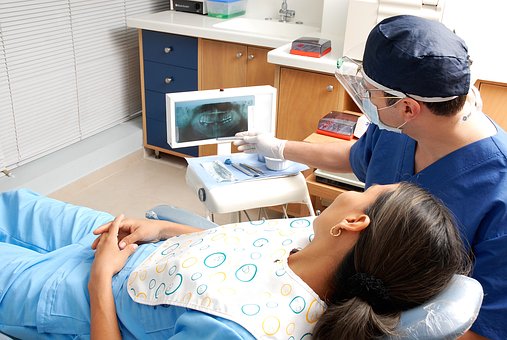Pain management during and after root canal treatment is a critical aspect of ensuring patient comfort and a successful outcome. Root canal therapy, while highly effective in treating dental infections and preserving teeth, can cause discomfort during the procedure and in the immediate post-operative period. However, with appropriate pain management strategies and medication, patients can undergo root canal treatment with minimal discomfort and experience a smooth recovery process. Let’s delve into the various aspects of pain management during and after root canal treatment in detail:
1. Pre-Treatment Evaluation and Planning
Before undergoing root canal therapy, your dentist will conduct a thorough evaluation to assess your dental health and any existing pain or discomfort. This evaluation may include dental X-rays to evaluate the extent of the infection or damage and determine the appropriate treatment approach. Based on this assessment, your dentist will develop a treatment plan tailored to your specific needs and may prescribe pre-operative medications to help manage pain and anxiety.
2. Local Anesthesia
During root canal treatment, local anesthesia is used to numb the affected tooth and surrounding tissues, ensuring that you remain comfortable throughout the procedure. Your dentist will administer the anesthesia via an injection near the tooth being treated, which effectively blocks the transmission of pain signals to the brain. Local anesthesia is typically very effective in preventing pain during root canal therapy, and additional anesthesia can be administered as needed to ensure your comfort.
3. Sedation Options
In addition to local anesthesia, your dentist may offer sedation options to help you relax and alleviate any anxiety or apprehension you may have about the procedure. Sedation options range from oral sedatives or nitrous oxide (laughing gas) for mild to moderate anxiety, to intravenous (IV) sedation for more severe anxiety or complex cases. Sedation can help you feel more comfortable and at ease during root canal treatment, reducing the perception of pain and discomfort.
4. Intraoperative Pain Management Techniques
During the root canal procedure itself, your dentist will employ various techniques to minimize discomfort and ensure a smooth treatment experience. This may include using dental dams to isolate the tooth being treated and prevent contamination from saliva, as well as employing gentle and precise instrumentation to clean and shape the root canals without causing unnecessary trauma to the surrounding tissues. Your dentist will also monitor your comfort levels throughout the procedure and make adjustments as needed to ensure your comfort.
5. Post-Treatment Pain Management
After root canal treatment, it is normal to experience some degree of discomfort or soreness as the anesthesia wears off and your body begins to heal. Your dentist will provide you with post-operative instructions and may prescribe pain medication to help manage any discomfort you may experience. Over-the-counter pain relievers such as ibuprofen or acetaminophen can also be effective in relieving mild to moderate pain. It is essential to follow your dentist’s instructions regarding medication dosage and frequency to ensure safe and effective pain management.
6. Ice Packs and Cold Compresses
Applying ice packs or cold compresses to the outside of your face near the treated tooth can help reduce swelling and alleviate pain after root canal treatment. Cold therapy works by constricting blood vessels in the area, which helps to reduce inflammation and numb the surrounding tissues, providing relief from pain and discomfort. Be sure to wrap the ice pack or cold compress in a cloth to protect your skin and avoid direct contact with the cold surface.
7. Rest and Relaxation
Resting and avoiding strenuous activities in the hours and days following root canal treatment can help promote healing and reduce discomfort. Take it easy and give your body time to recover, avoiding activities that may put unnecessary strain on the treated tooth or cause discomfort. Resting with your head elevated can also help reduce swelling and alleviate pain, particularly if you experience any post-operative swelling in the area.
8. Maintaining Good Oral Hygiene
Maintaining good oral hygiene is essential for promoting healing and preventing complications after root canal treatment. Be sure to follow your dentist’s instructions regarding oral care, including brushing and flossing gently around the treated tooth and avoiding vigorous rinsing or spitting in the immediate post-operative period. Keeping the area clean and free of bacteria can help prevent infection and promote a smooth recovery process.
9. Follow-Up Care
Be sure to attend any follow-up appointments scheduled by your dentist to monitor your healing progress and ensure that the root canal treatment was successful. Your dentist may take dental X-rays to evaluate the integrity of the root canal filling and the surrounding bone structure and make any necessary adjustments or recommendations based on your recovery.
10. Communication with Your Dentist
Finally, communication with your dentist is key to ensuring effective pain management during and after root canal treatment. If you experience any persistent or severe pain, swelling, or other concerning symptoms, be sure to contact your dentist promptly for further evaluation and treatment. Your dentist can provide additional pain relief measures or address any underlying issues that may be contributing to your discomfort, ensuring a smooth and successful recovery process.
In conclusion, effective pain management is essential for ensuring patient comfort and a successful outcome during and after root canal treatment. By employing a combination of pre-operative evaluation, local anesthesia, sedation options, intraoperative pain management techniques, and post-operative care strategies, dentists can help patients undergo root canal therapy with minimal discomfort and experience a smooth recovery process. If you are experiencing dental pain or discomfort, consult with a qualified dentist to determine if root canal treatment is the right option for you and discuss pain management strategies to ensure a positive treatment experience.
D. Dental’s Root Canal Therapy The Colony area provides specialized services for treating tooth infections. With cutting-edge techniques and experienced dentists, they offer effective solutions to preserve affected teeth. Rely on D. Dental for outstanding service and a comforting atmosphere during your root canal procedure.



